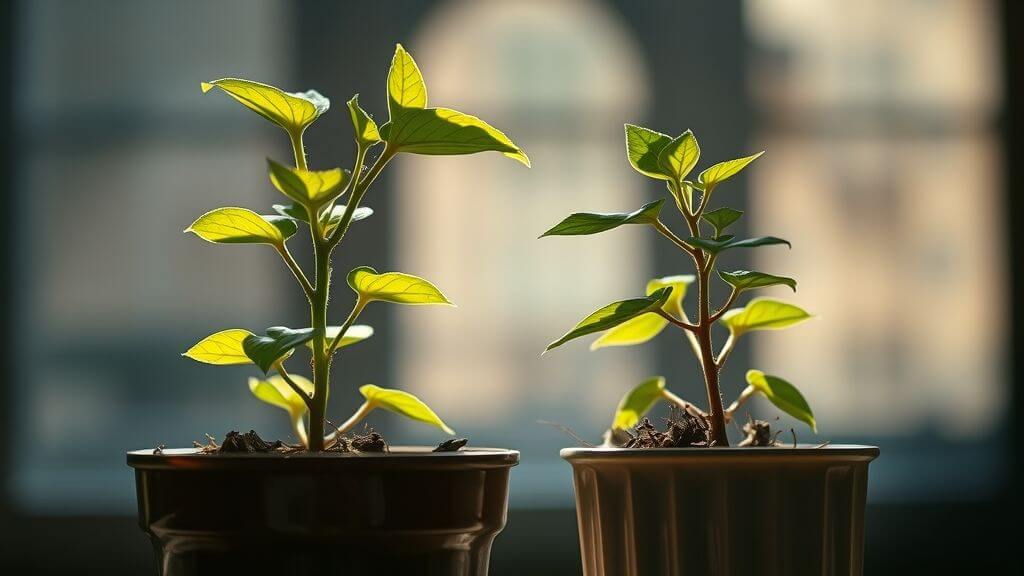
Friendship VS Toxic Relationship: Know the Difference Have you ever sat in your car after hanging out with a “friend,” gripping the steering wheel, wondering why you feel so… empty? Like someone just siphoned your soul through a coffee straw and left you with the bill? Yeah. Me too. That feeling isn’t friendship – it’s a warning sign we’ve been trained to ignore. The line between a healthy friendship and a toxic relationship is sometimes razor-thin, especially when nostalgia and “but we’ve been friends forever” blur your vision.
Today, I’m pulling back the curtain on both – not from some perfect high horse, but from the messiest trenches of my own journal pages. Because friendship vs toxic relationship isn’t just a comparison – it’s the difference between flourishing and surviving. The Pain – When Your “Best Friend” Becomes Your Emotional Vampire
Friendship vs. Toxic Relationship: Why the Difference Matters
It was Tuesday night. Nothing special. Just another hangout with my oldest friend. We grabbed sushi, laughed about old times, and everything seemed normal. Except on the drive home, I couldn’t stop crying. It hit me somewhere between the California roll and the check – I had spent three hours talking about her problems, celebrating her promotion, and listening to her dating drama. When I mentioned my new writing gig? “Oh, that’s cool. Anyway, can you believe what Jake said to me?” Just like that. Brushed aside like lint.
The Moment It Finally Clicked
Real talk: healthy friendships feel like oxygen – they help you breathe easier. Toxic ones? They leave you gasping, wondering why there’s never enough air for you in the room. How many times had I driven home feeling like this? Depleted. Unseen. Like my existence was just a sounding board for someone else’s main character energy. That night I wrote in my journal: “Why does loving her feel like losing me?”
Self-Anger – The Times We Let Red Flags Fly
The worst part isn’t what they do – it’s what we let slide. “She didn’t mean it that way.” “He’s just going through a lot right now.” “Maybe I am being too sensitive?” Sound familiar? Ugh. I’ve highlighted these same excuses in my journal so many times that the pages are practically neon.
Remember when your friend “accidentally” told everyone about your biggest insecurity as a “funny story” at that party? Or when they conveniently forgot to invite you to that group hangout because they “didn’t think it was your thing”? I spent years making myself smaller to keep a friendship bigger. Shrinking my needs, my voice, my boundaries – all while that inner voice was screaming: THIS ISN’T RIGHT.
The Cost of Shrinking Yourself for a Friendship
A healthy friendship vs toxic relationship comes down to this: do you have to twist yourself into a human pretzel to make it work? Because real friendship fits you – you don’t have to shape-shift for it.
Hardness – The “It’s Not a Big Deal” Lie We Tell Ourselves
“It’s fine. Whatever. Not like I care that much anyway.” Anyone else wear this emotional armor? The number of times I’ve typed “it’s cool” with tears streaming down my face is honestly embarrassing. There’s this weird pride in being able to take emotional hits without flinching. Like it’s somehow noble to be the friend who never complains when:
They consistently cancel last minute
- They “forget” to acknowledge your birthday
- They make subtle digs about your choices
We tell ourselves we’re being “chill” when really we’re building walls. Because it hurts less to act hard than to admit someone you love is hurting you. In the comparison of friendship vs toxic relationship, this is crucial: healthy connections don’t require you to constantly defend your heart.
Guilt – The High Price of One-Sided Sacrifice
I found an old text thread last week that broke me. Four unanswered “how are you?” messages from me. Four separate “I really need to talk” messages from them that I dropped everything to answer. The sacrifice tally in toxic friendships isn’t just uneven – it’s a mathematical impossibility. The more you give, the more they take, until the equation never balances.
Remember:
- The job interview you skipped to help them move
- The boundaries you abandoned when they were “going through something”
- The dreams you put on hold because they “needed you more right now”
- The money you lent that was somehow never “the right time” to pay back
In healthy friendships, sacrifice flows both ways like a natural tide. In toxic ones, you’re always the shore being eroded, never the wave doing the taking. When comparing healthy friendship vs toxic relationship patterns, check your sacrifice scoreboard. If you’re the only one with skin in the game, that’s not friendship – it’s emotional servitude.Turning Point – When You Realize Love Shouldn’t Hurt This Much
For me, the turning point came on my birthday. “Sorry, can’t make it tonight. Josh surprised me with concert tickets! Have fun tho!” Not even a proper “happy birthday.” I sat in that restaurant with the empty chair across from me, and something finally clicked. This pain wasn’t love.
This constant disappointment wasn’t friendship. This walking-on-eggshells, never-enough feeling wasn’t normal. Love – real love – doesn’t consistently deplete you. That night, I wrote in my journal: “I don’t owe anyone access to me just because we have history.” It wasn’t angry. It was just… true.
How to Survive a Breakup Without Losing Yourself
In the friendship vs toxic relationship debate, here’s the ultimate truth: friendship should amplify your life, not shrink it.

Isolation – Healing in the Echo Chamber of Your Own Mind
The loneliest part isn’t ending the toxic friendship – it’s the silence that follows. No more chaotic text threads. No more drama-filled phone calls. No more backhanded compliments disguised as “honesty.” Just… quiet. And in that quiet, you realize how long it’s been since you heard your own thoughts without them being interrupted, dismissed, or hijacked. There’s a special type of isolation that comes with healing from a toxic friendship.
You can’t exactly post “celebrating six months free from my emotional vampire bestie!” People ask, “Do you guys still talk?” And your answer of “No, we needed to go separate ways” sounds so inadequate compared to the novel of pain you could write. In the comparison between healthy friendship vs toxic relationship recovery, this is rarely discussed: friendship breakups can be lonelier than romantic ones because they lack cultural recognition.
Imposter Syndrome – “Am I Just Being Dramatic?”
The voice comes at 2 AM when you’re scrolling through old photos: “Maybe I overreacted?” “Was it really that bad?” “Am I just too sensitive?” “What if I’m the toxic one?” The gaslighting doesn’t stop when the friendship ends – it just becomes your own voice. I found myself second-guessing every memory, every hurt feeling, every boundary I’d tried to set.
Was I really being reasonable when I asked them not to compare me to others? Was I being controlling when I said their jokes about my insecurities weren’t funny? Here’s what I’ve learned about the friendship vs toxic relationship minefield: if you’re worried about being the toxic one, you probably aren’t. Truly toxic people rarely question their impact on others.
So no, you’re not being dramatic. Your feelings are valid – even without someone else’s permission to feel them.
Comparison Trap – Watching Others’ Highlight Reels
There’s nothing like scrolling through Instagram after ending a toxic friendship to make you feel like the loneliest person on earth. Everyone else seems to have their perfect friend group:
- Weekend trips with matching outfits
- Birthday dinners with heartfelt captions
- Inside jokes and summer adventures
- “Friends since kindergarten and still going strong!”
Meanwhile, you’re sitting there wondering why you couldn’t make one single friendship work. The comparison trap is brutal when healing from toxic relationships. You see the smiling faces and group hugs, not knowing how many of those friendships are held together by the same toxic glue you just scrubbed from your life.
When looking at healthy friendship vs toxic relationship standards, remember: depth beats breadth every time. One authentic connection outweighs a dozen performative ones.

Shame Cycle – The 3 AM “Maybe I Should Text Them” Moment
It’s been three months of no contact. You’re doing better. You’re rediscovering old hobbies. You’re breathing easier. Then something happens – you get a promotion, see a movie you both loved, or just have a random Tuesday that feels empty – and your finger hovers over their name in your phone. “Just one text wouldn’t hurt…” “Maybe things could be different now…” “What if they’ve changed?” The shame spiral that follows is fierce:
Craving connection with someone who hurt you
- Hating yourself for being “weak”
- Wondering if you’re throwing away something valuable
- Reminding yourself why you left
- Missing them anyway
In the friendship vs toxic relationship healing journey, this cycle isn’t failure – it’s human. Missing someone doesn’t mean you should invite them back into your life. Sometimes love and history aren’t enough reasons to keep someone in your story.
Betrayal – When the Mask Finally Slips
“I never actually liked that about you anyway.” “Everyone agrees with me about this, they’re just afraid to tell you.” “I’ve always been the one carrying this friendship.” The things they say when confronted with their own behavior often reveal what was hiding beneath the surface all along. For me, it was discovering the group chat I wasn’t in, where my “best friend” regularly mocked the personal struggles I’d shared in confidence.
Screenshots don’t lie, even when friends do. The friendship vs toxic relationship revelation usually comes with receipts – concrete evidence that what you felt all along was real. The subtle put-downs. The backhanded compliments. The way they’d retell stories making themselves the hero and you the burden. Healthy friendships don’t need masks because there’s nothing to hide. Toxic ones crumble the moment you ask to see what’s underneath.
Identity Crisis – Reclaiming the Parts You Surrendered
“I don’t even know if I actually like true crime podcasts or if I just pretended to because she was so into them.” Ever had that thought? The realization that you’ve absorbed someone else’s preferences, speech patterns, and even values just to maintain the friendship? After a toxic friendship ends, there’s this strange archaeological dig you do through your own personality.
What’s actually you, and what’s a relic of trying to keep someone else happy? Did you really hate that restaurant, or was that their opinion? Do you actually love that band, or were you just trying to have something in common? Were those political views yours, or did you adopt them to avoid their mockery? The friendship vs toxic relationship aftermath involves this painful inventory of all you surrendered just to belong. Write it down: “I’m allowed to walk away from people who don’t choose me.”
Forgiveness – But Not For Them
The final stage isn’t about forgiving them. It’s about forgiving yourself:
- For ignoring your intuition
- For letting boundaries be crossed
- For believing you deserved less
- For staying longer than you should have
- For the version of yourself that believed this was love
This step in the journey from toxic friendship to healing isn’t about making peace with them – it’s about making peace with the mirror. Forgiveness doesn’t mean texting them “all is forgotten.” Sometimes it just means deleting their number and whispering to yourself: “Not all friends are forever. Some are lessons.” When examining the difference between healthy friendship vs toxic relationship patterns, the capacity for self-forgiveness becomes the ultimate dividing line between past pain and future possibility.

The Bottom Line: Choose Your Peace
Your energy is sacred now. You protect it. Healthy friendships feel like sunlight – warming, illuminating, helping you grow. Toxic relationships feel like quicksand – the harder you try, the deeper you sink.
The signs were always there:
| What It Looks Like | Real Friendship | Real Friendship |
| Communication | “Hey, I felt hurt when you joked about X – can we talk?” | “You’re too sensitive!” |
| Support | Shows up with soup when you’re sick | “Your problems are boring” |
| Trust | Respects your privacy | “Why won’t you give me your password?” |
| Growth | Cheers your success, even from afar | “You think you’re better than me now?” |
| Apologies | “I was wrong. I’m sorry.” | “Sorry you feel that way.” |
| Energy After | You feel lighter, loved | You feel drained |

Your heart knows the difference between friendship vs toxic relationship dynamics. Your body keeps the score in anxiety, in tension, in the subtle relief you feel when they cancel plans.
Listen to it. Choose people who make you feel chosen. Choose connections that feel like breath, not suffocation. Your peace deserves backup. And sometimes that backup is you, walking away.
Ready to Heal?
If this post felt like your story — you’re not alone. You’re evolving. You’re healing. Want more? Download our free “Toxic Friendship Detox Journal” or sign up for weekly mental wellness drops straight to your inbox. Your peace deserves backup. Let’s rebuild it together.
FAQ: Friendship vs Toxic Relationship
Q: Is a toxic friendship considered emotional abuse? A: Yes, in many cases toxic friendships involve emotional manipulation, gaslighting, and neglect — all forms of emotional abuse.
Q: How do I know if a friend is draining my energy? A: If you consistently feel anxious, small, or exhausted after talking to them, it’s likely emotional burnout from a toxic bond.
Q: Can you heal from a toxic friendship without closure? A: 100%. Sometimes silence is the closure. Healing is about choosing peace, not begging for explanations.
Credible Study / Research Links
- Emotional Abuse and Toxic Relationships – HelpGuide
A comprehensive guide on emotional abuse, including toxic friendships and their impact on mental health.
Disclaimer: This post is for informational and emotional support purposes only. Every relationship is unique, and this is not professional legal, medical, or mental health advice. Read our full disclaimer.
Affiliate Disclosure: Some links in this post may be affiliate links. If you make a purchase through them, I may earn a small commission at no extra cost to you. Learn more here.
Pingback: 50 Tinder Pick-Up Lines That Actually Work (Funny, Flirty & Fresh) - Love and Breakups